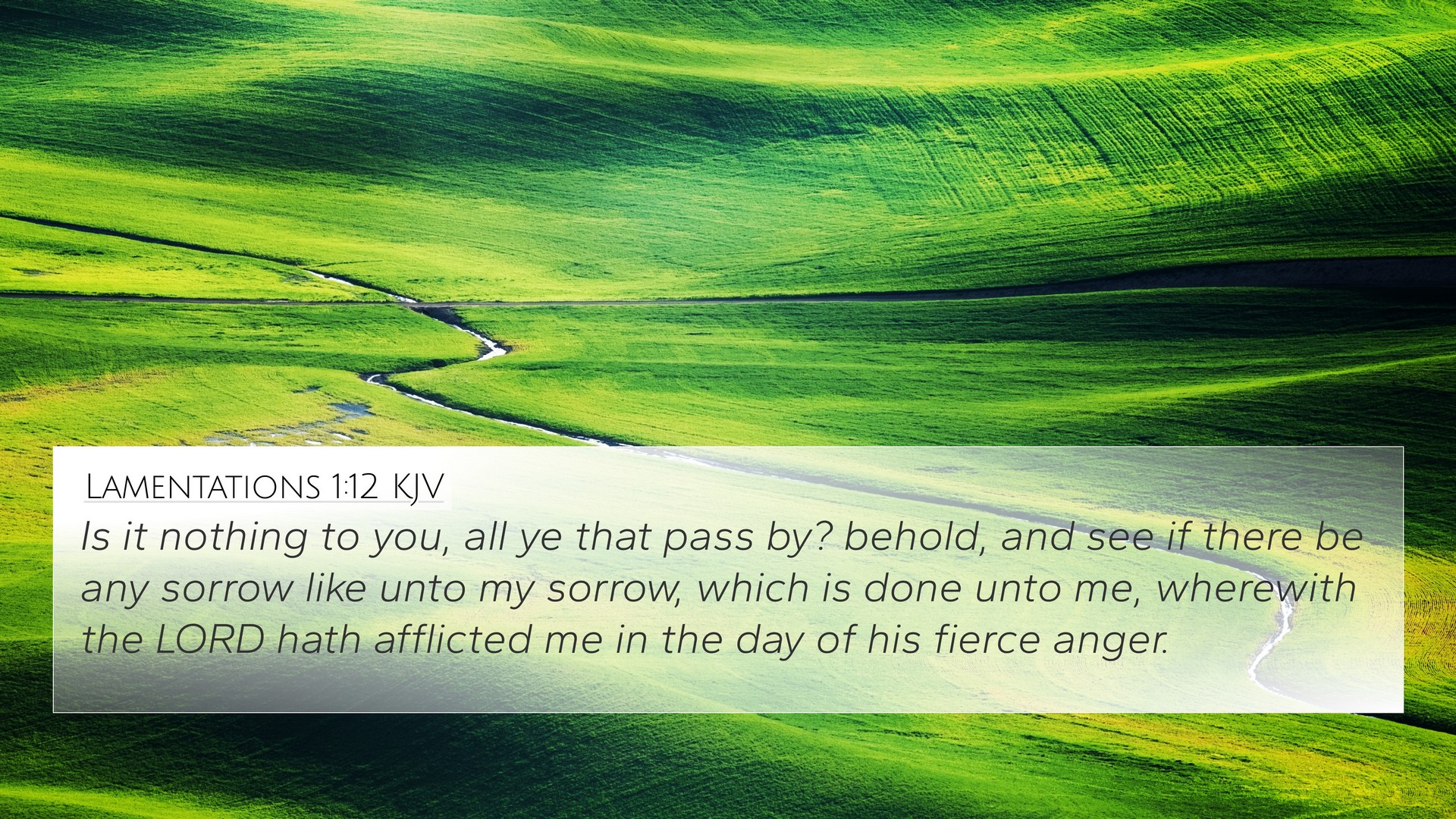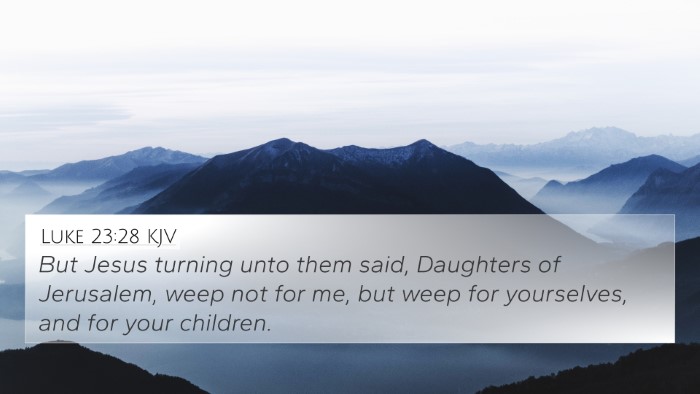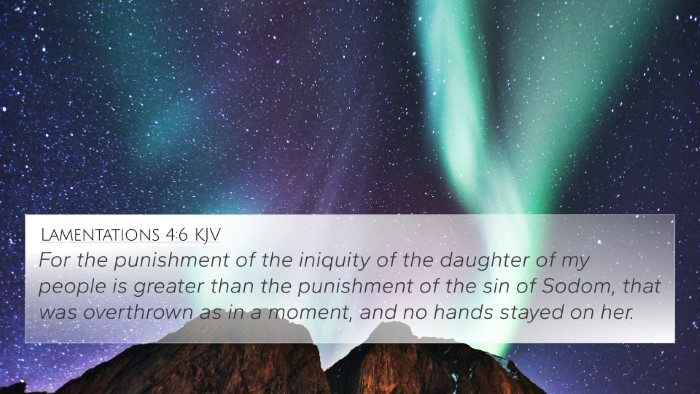Lamentations 1:12 - Meaning and Interpretation
Verse: "Is it nothing to you, all ye that pass by? behold, and see if there be any sorrow like unto my sorrow, which is done unto me, wherewith the LORD hath afflicted me in the day of his fierce anger." (Lamentations 1:12, KJV)
Overview
The Book of Lamentations is traditionally attributed to the prophet Jeremiah and is a poetic reflection of the grief and sorrow following the destruction of Jerusalem. Lamentations 1:12 serves as a poignant cry of pain and desolation from the author, urging onlookers to recognize the depth of sorrow experienced because of God's judgment.
Interpretation and Insights
This verse captures the essence of lamentation - a heartfelt plea to others to acknowledge personal pain. Below is a combined interpretation from public domain commentaries:
-
Matthew Henry:
Henry notes the intense sorrow of Jerusalem personified. The cry, "Is it nothing to you?" serves as an indictment against those who pass by unfeelingly, indifferent to the suffering being endured. This challenge compels the reader to consider their own awareness and participation in the collective experience of grief.
-
Albert Barnes:
Barnes emphasizes the rhetorical nature of the question, highlighting that the utter desolation of Jerusalem is unmatched ('any sorrow like unto my sorrow'). He notes this verse invites sympathy and urges reflections on the catastrophic consequences of sin and divine judgment.
-
Adam Clarke:
Clarke elaborates on the moral implications of this verse, commenting on how the statement underscores a call for emotional engagement. He articulates how Jerusalem’s state is reflective of spiritual desolation, with the “day of His fierce anger” speaking to the reality of divine retribution.
Thematic Connections
Lamentations 1:12 resonates with several thematic elements throughout the Bible. Below are highlighted connections between Bible verses that reflect similar themes of sorrow, judgment, and introspection:
- Psalms 38:17-19: Reflects on personal grief and God's discipline.
- Jeremiah 9:1: Expresses deep sorrow over the sin of the people.
- Isaiah 53:3: Describes the suffering servant who bears grief and pain.
- Lamentations 3:33: Acknowledges that God does not willingly afflict the children of men.
- Ezekiel 18:30: Calls for repentance to avoid divine wrath.
- 2 Corinthians 7:10: Speaks of godly sorrow leading to repentance.
- Romans 8:18: Discusses present sufferings not being worthy to be compared with future glory.
Cross-Referencing and Inter-Biblical Dialogue
This verse invites readers to engage in cross-referencing Biblical texts to gain deeper insights into the themes of suffering and divine justice. Some tools for Bible cross-referencing include:
- Bible Concordance: Helpful for finding specific verses related to certain words or themes.
- Bible Cross-Reference Guide: Assists readers in locating related scriptures across different books.
- Bible Chain References: A method to investigate thematic links between verses.
Conclusion
The cry of Lamentations 1:12 serves as a profound reminder of human suffering and the need for reflection. Through comparative Bible verse analysis, readers can identify significant Bible verses that relate to each other, enhancing their understanding of God's nature and our responses to divine discipline.
This verse not only reveals the desolation stemming from divine judgment but also emphasizes the necessity of acknowledging our own spiritual state and the broader themes of redemption and mourning throughout Scripture.











